




Postgraduate International Student Guide 2025/26






Postgraduate International Student Guide 2025/26
Welcome to ANU, from all corners of the earth.
Choosing to study an internationally recognised postgraduate degree at the Australian National University will help you drive your career further – or kick-start a new one – while propelling the world forward.
Our enriching courses are driven by the latest research and will see you diving deeply into your disciplines. By connecting you with opportunities to network and apply your learning in industry, research and community settings, we'll equip you to make a difference to your life and that of people in global communities around you.
Take your next step at ANU, in the heart of Australia’s national capital, Canberra.
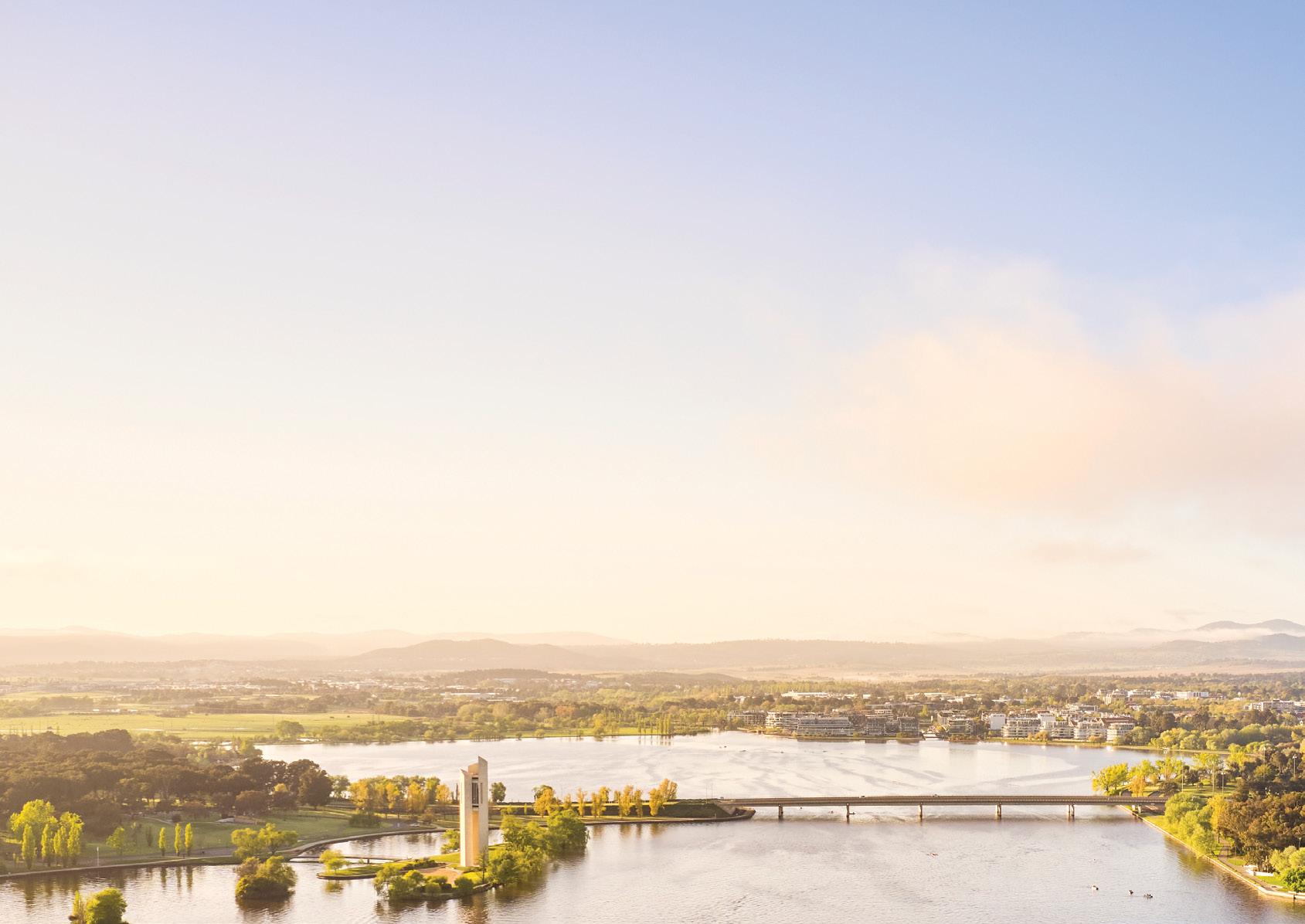
The Australian National University (ANU) acknowledges, celebrates and pays respect to the Ngambri and Ngunnawal people of the Canberra region and to all First Nations Australians on whose traditional lands we live, meet and work.
17,000+ students from 100 countries
6 Nobel laureates
#1 in 13 academic disciplines in Australia1
#1 most employable graduates in Australia2
#1 most international university3
5 stars for student-to-staff ratio and staff qualifications4
#30 in the world5
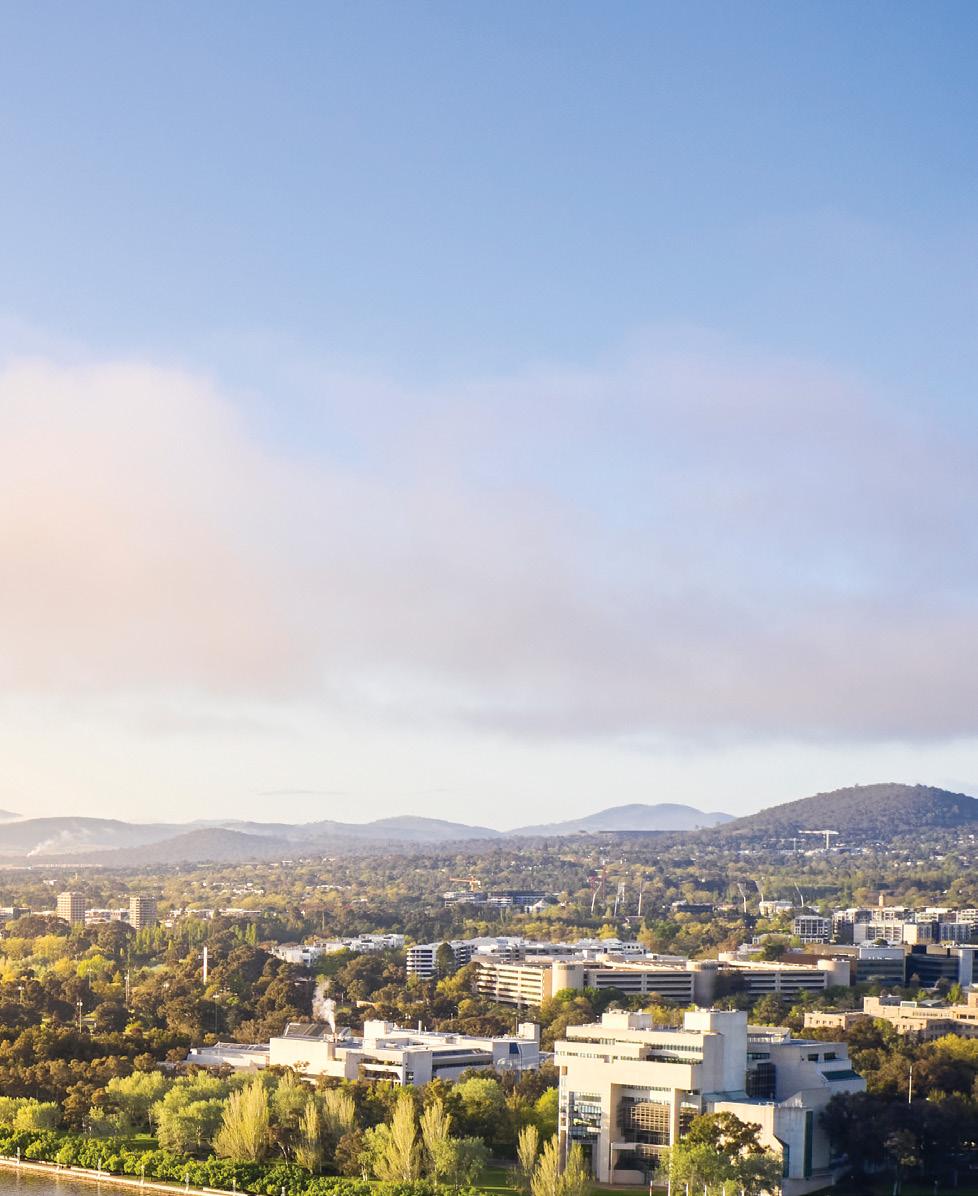
University is a place for learning, a place where teachers shape and reshape how you see the world, and a place where you will make incredible friends.



If you choose to study at ANU, you will join students from 100 different countries. You will study with academics who are leaders in their fields, and in classes small enough that the connections you make will be genuinely meaningful. You will have radical conversations and precious time to think about how you can help to make the world a better place. And you will do all of this on an astoundingly beautiful campus, surrounded by thousands of trees, so much colourful birdlife, and a community of faculty, staff and classmates who want you to succeed.
It is my hope that if you join ANU, it will become your home away from home – as it has been for so many people, including me. At the end of your degree, I know you will emerge as the best version of yourself: an extraordinary subject matter expert, an extraordinary citizen of the world, and an extraordinary human being.
I look forward to welcoming you.
Genevieve Bell Vice-Chancellor and President

In Canberra, 25% of people speak a language other than English, 2 many of them studying at ANU. With a student population representing Australia and countries around the world, we're rated the country's most international university for a reason.
You can choose from 152 study options. ANU offers six-month short courses (graduate certificates), graduate diplomas and master's degrees, as well as unique research programs. You can also create a flexible double master's degree here. Our rewarding study experiences build the graduates with expertise and resilience that employers look for.
Connecting with talented lecturers, tutors and classmates – and amazing resources at ANU – is easy. Our student-teacher ratios are among the best in Australian universities and our research and learning facilities are second to none. As a trusted intellectual powerhouse, we offer opportunities unique to a national capital, including access to government decision makers and industry internships.
Our campus has everything you need to fit further study into your life – from childcare, supermarkets, textbooks and stationery to 24-hour libraries, a gym, doctor's surgery and great coffee. We also host events and social clubs to help you build networks and feel at home in our community. Need anything else? Canberra's CBD is just a few minutes' walk or bike ride away.
With students from all over the globe, Canberra offers an unforgettable experience. We guarantee a room in a student residence and connect you with a supportive campus community. Discover the city, make lifelong friends and embrace the next chapter of your life.






Australia offers incredible natural landscapes and city experiences – and the national capital is no exception. With a median age of 35, young and welcoming Canberra has kangaroos and koalas, rivers and mountains for you to explore, as well as great food, culture and a chilled city vibe. Say “g’day” to this cool capital.
On weekends, discover Braddon’s local coffee roasters and eclectic cafes, just a few minutes’ walk from ANU, before heading to the Haig Park markets for some locally made clothes, jewellery and produce. You can also take in a show at the theatre, an exhibition at the National Gallery or National Museum, and discover the workings of Australia’s government at Parliament House.
All year, you can walk or ride a bike along the weaving trails dotted around local nature reserves. In summer, take some time away from your studies at the National Zoo and Aquarium or swim in the Murrumbidgee River. In winter, hire some ski gear and flock with your friends to the Snowy Mountains.
Canberra’s awesome festivals span four distinct seasons. In spring, wander through flower-filled Floriade and in summer, watch a Canberra Comedy Festival gig. In autumn, the illuminating Enlighten Festival will brighten your eyes and the Truffle Festival, held in winter, will tantalise your taste buds. As the sun descends on another beautiful blue-sky day, head into the city to a live music venue, nightclub or over to the National Botanic Gardens, where you can watch a movie under the stars.
Canberra has rooftop bars serving tapas, local breweries specialising in beer and hamburgers, and bistros offering award-winning dishes and glimpses of the past.
When it comes to shopping, the city has a smorgasbord of small and large retailers, including boutique and vintage shops, several fresh produce markets and big retail centres.
With your Australian student visa, you can work part-time for up to 48 hours every two weeks during semester and unrestricted hours during study breaks.
A highly educated city, Canberra provides many employment opportunities for you to choose from.
ANU guarantees you a room in student accommodation.
Learn more about our accommodation guarantee on page 12.
A capital city to love
#1 highest average income and lowest unemployment in Australia
Why Study in Canberra 2023
#1 most sustainable city in Australia
Earth Org 2022
#3 smartest city in the world
IMD Smart City Index 2023
25% of people speak a language other than English
Multicultural Canberra 2023

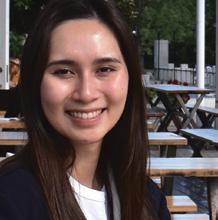
“My learning experience throughout my bachelor and current postgraduate degree in medicine has been amazing. ANU offers a large range of courses that allow me to explore different areas of science and discover my passion for medicine. I’m thankful that I’m being taught by passionate and caring lecturers and clinicians who instil knowledge, confidence and empathy in me.”
Katherine Nguyen – Vietnam Doctor of Medicine and Surgery

More than half of Canberra's population holds a degree; Canberra is a place of decision-makers and deep thinkers. Surround yourself with artists, researchers, scientists, diplomats, academics, policymakers and cutting-edge entrepreneurs. They all call Australia’s capital home.
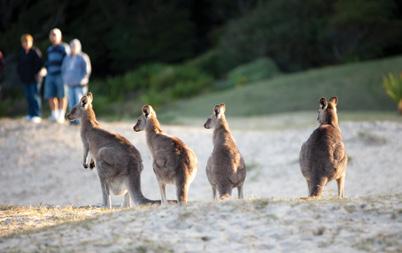

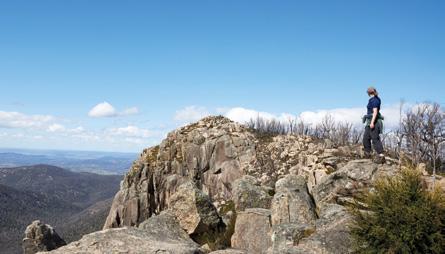

Interactive tutorials, practical internship courses and skill-building workshops are just a few of the ingredients that drive the learning experience at ANU. Studying in person on our campus is another – and will see you getting better results than studying online.
Experience creative and meaningful approaches to teaching and problem solving. At ANU, classes are small, so you’ll learn in innovative ways. Imagine embarking on a metaphorical voyage in a canoe to get a sense of the Pacific’s diverse social and cultural dimensions or working in a ‘flipped classroom’ and having flexible interactive one-onone meetings with your teachers.
At ANU, you can work in a recording or glass studio or with tools like 3D printers in MakerSpace. Depending on the courses you take or research you do, you can also explore nuclear physics in our heavy ion accelerator facility, argue in a contemporary moot courtroom, witness the SkyMapper telescope’s creation of the first comprehensive digital survey of the entire southern sky, or code Gadi, the southern hemisphere’s fastest supercomputer. All ANU courses are taught in innovative facilities that encourage exploration and collaboration.
During your degree, you may be able to enrol in internship courses and gain a range of experience in business, government, the cultural sector and community settings. Our internships explore subjects as diverse as art collection management, archaeology, engineering, computing, public health, policy and diplomacy, as well as business, economics, law, science and strategy.
ANU courses expose you to the research your teachers are conducting and provide experiential opportunities to engage with it. This research-led approach to learning triggers debate while developing critical thinking skills.
We offer workshops, events and short courses that develop your skills so you can get the most out of the research you do as part of your degree.
our
Your studies will mostly take place on our Acton campus, but a research project, hands-on field trip, specialist course or other opportunity could take you to other ANU campuses in the Australian Capital Territory, New South Wales and the Northern Territory.


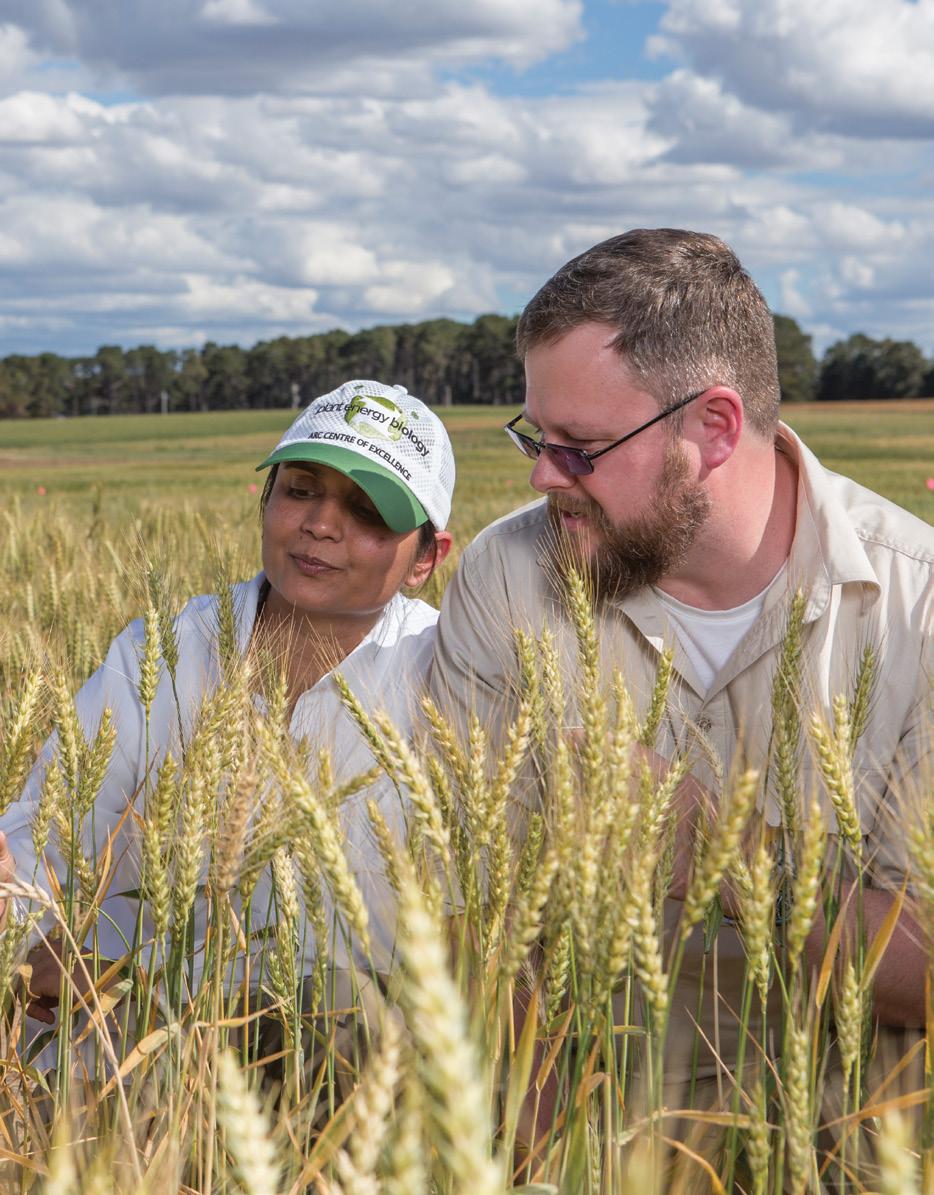

“ANU has a very studentfirst approach to learning and teaching. I have been constantly encouraged to push my limits, explore knowledge and think outside the box. Assignments are designed to help build soft skills like accountability, collaboration and cooperation. The professors are a true inspiration. They allow students to choose their path to reach the final goal within prescribed limits. They challenge us to explore and use our intellect and imagination. This is a place where you will also grow personally from your experience; it is a roller coaster journey, where I succeed and lose, but in the end I always learn. At every step I’ve been pushed at ANU to think beyond the limits, face challenges and become a better version of myself.”
Gurisha Gupta – India Master of Finance

Networking at ANU develops professional contacts, creates relationships and connects you with information and knowledge. It can also build your reputation.
Each year, we invite students to the Career Connect fair, usually held in Semester 2. It brings industries and companies together on campus so you can talk to them about work opportunities and build your professional networks.
Unique to ANU are a range of special internship programs that could see you working during semester breaks alongside politicians and their aides in the ACT Legislative Assembly, Parliament House or overseas in the United States Congress. We also offer internship courses in non-policy disciplines.
Research support is about connection and collaboration. In fact, we have the Research and Innovation Services office which provides our higher degrees by research (HDR) communities with training, fellowships and support, and the Graduate Research Office which works with researchers directly. Training and activities where you can mingle with other researchers include boot camps, candidate inductions, ethics and integrity workshops, as well as entrepreneurship opportunities and local innovation networks.
ANU events are great opportunities to meet other like-minded people and talk to academics and special guests. Online and in person, you can attend tours of campus, author and artist talks, lectures, music performances and listen to conversations between experts about aspects of their research.
Among ANU alumni are former Australian prime minister Dr Kevin Rudd AC, Governor-General of Australia Sam Mostyn AO (from 1 July 2024) and Indonesia’s former foreign minister Dr Raden Mohammad Marty Muliana Natalegawa – as well as many musicians, comedians, CEOs, artists, authors and scientists. Meet them at our events. And, when you graduate, enjoy all the benefits of being part of our engaging international alumni community.
Whether you’re interested in the arts, languages, advocacy, physics or sport, there’s a student-run social, academic or cultural club or society that will connect you with other likeminded people.
Explore ANU clubs at anusa.com.au/life/clublist/
Our events share and celebrate research, education, policy engagement and community. Search what's on



“The systems engineering curriculum at ANU is giving me the skills to contribute to crossdisciplinary problems. It’s shown me how to communicate engineering work and solutions with both specialists and the general public. I have been equipped with insights to complex practical and theoretical problems in the energy industry. I can also evaluate complex systems in terms of technical and social perspectives. ANU offers me a wide range of study resources and extraordinary teaching experiences. I work with highly distinguished scholars in the field and excellent students from all around the world.”
Tuan Tran – Vietnam
Master of Engineering (Renewable
Energy)

“I am from the fourth smallest country in the world. This opportunity to study and learn from the best academics, diplomats and policy practitioners will have a lifelong impact on my character, the work I will contribute when I return home, and the learning process that I will continue as an ANU alumna.”
Moira Simmons – Tuvalu Master of National Security Policy

Fitting further study around your other commitments requires support. Whether it’s childcare or accommodation you need to meet your goals, or career guidance and enrolment help, it’s all here.
Settling into university life is easy at ANU. Student advisers can help you with orientation tasks, enrolling in your classes and anything else you may need to do before semester begins.
Our fun and relaxed English conversation groups are a great way to meet new people and practice your language skills with native speakers.
We have five childcare centres to support you and your family. They cater for all ages up to pre-school level. Some are not-for-profit centres, while others are privately owned and run.
ANU Student Central is your first port of call for anything related to the administration of your degree –from advice about enrolling in your courses and managing your timetable to paying your fees and preparing to graduate. Your ANU college can also provide you with similar support.
We supply workshops and one-onone sessions on academic writing, research techniques, communication strategies, referencing, academic integrity and how to prepare for exams. Just say what you need, and we’ll provide it.
The ANU Careers team can give you one-on-one practical career advice and point you to resources that can help you increase your impact at interview.
Whenever you need confidential medical care or counselling, you’ll find it right here on campus. You can either make an appointment or walk in to see a doctor or nurse.
When you need spiritual support, our multifaith chaplains can help. They represent the Anglican, Catholic and Baptist churches and the Muslim, Hindu, Jewish and Baha’i faiths, as well as the humanist tradition.
SET4ANU is a free mentoring program designed to help you transition to life at ANU. Signing up will match you with a later-year student volunteer who can help you through your first few weeks on campus.
You can phone this crisis service if you need relief from emotional distress, help managing immediate threats to your safety or when you want to learn about pathways to longer-term support services.
Our Graduate Research Office supports higher degree by research (HDR) candidates. It can help you with enrolment, leave and extensions, thesis submissions, examinations and restrictions. The office also coordinates scholarships.
Email: gro@anu.edu.au
Phone: +61 2 6125 5777
If you are a carer, have a medical condition or are living with a disability, we'll provide you with advice about support and adjustments that will help you take part fully in your degree program.
Email: access.inclusion@anu.edu.au
Phone: +61 2 6125 5036



“I am a lawyer, researcher and aspiring legal scholar. Ever since my undergraduate law studies in Nigeria and qualification as a barrister and solicitor, I’ve been eager to continue broadening my academic and professional horizons. So, I set my sights on international study at ANU with the help of an education agent and the ANU Chancellor’s International Scholarship. My courses give me insight to matters related to one of my main passions: international economic law – and ANU College of Law events draw on the expertise of its academics, as well as partners in the legal profession, politics and other sectors.”
Anu Adeyemi – Nigeria Master of International Law and Diplomacy



Our beautiful and safe campus is a welcoming hub of study and social activity. It offers everything you need to complete your assignments, meet new people and move easily between classes, part-time work and home.
Living in a secure, self-catered student residence on our campus puts your classes, libraries and all the amenities of the Kambri student hub in easy reach, while providing you with a supportive community, student events and residential advisers.
ANU guarantees you a room in a student residence. You can choose to live with other postgraduate scholars or in a mixed residential community of undergraduate and postgraduate students.
As a guide, rates for postgraduate accommodation in 2024 ranged between AUD $282 and $571 per week.
We offer a wide range of rooms and studios, both on and off campus. Explore ANU residences

Apply for student accommodation
Apply for a room before you receive a study offer. We'll try to place you within the residence of your choice. Request a room

The main ANU campus at Acton is just a short walk or bike ride away from Canberra’s CBD. This proximity makes it easy to travel between classes and all the things you may need in the city, including banks, hairdressers, grocers and public transport.
You’ll find some excellent restaurants, bars, theatres and music venues in the CBD as well.
Our five libraries are open seven days a week – and four of them 24 hours a day. They provide access to PC and Mac computers, printers, copiers and study spaces, as well as regular workshops on how best to utilise their vast resources.
Our campus has plenty of other study spaces to choose from too. For starters, there’s the six floors of the striking Marie Reay Teaching Centre that include flexible spaces with tables and chairs, kitchen facilities, cutting-edge technology and panoramic views of the city.
Conveniently on the ANU campus are cafes, a pharmacy, supermarket, and a bookshop. They provide everything from basic groceries and snacks, to prescription medicines, stationery and textbooks. Catch up with classmates over a coffee or grab a bag of groceries on-the-go.
Maintain your physical and mental fitness at our swimming pool, two gyms and four ovals. You can book our indoor courts and fitness spaces at great student rates. Like Canberra, the University is bike and e-scooter friendly.
You can travel to and from campus on Canberra’s efficient light rail and bus networks.
The city's roads have a network of bike paths that connect the CBD and suburbs. Affordable car parking is also available on campus.

24/7 security
The ANU Security team and the free ANUOK app work together to make sure our campus is a safe environment for you. Reach them quickly by downloading the ANUOK app when you arrive.



“As part of the Australian Awards Scholarship network, I have had an experience of ANU that has gone beyond the classroom. Recently, I travelled to Newcastle in New South Wales to network with professors and learn about how Australia is tackling the UN Sustainable Goals. It's been eye-opening and inspiring to be part of such initiatives.”

“I feel lucky to have been given real industry experience in an IT company and to be able to work as a tutor for a computer science course while studying at ANU. One of the best resources here is the members of the community. Interact with lecturers, tutors, peers and staff members as you will have something new to learn. Sometimes, conversations can lead to more opportunities.”
Master of Digital Humanities and Public Culture


From the arts, politics, languages and international studies to the sciences, cybernetics, health, law and Asia-Pacific studies, there’s a coursework or research degree for you at ANU. Each has the exceptional knowledge and learning experiences you need to get ahead.
Graduate certificate (24 units)
Six months’ full-time study
Graduate diploma (48 units)
One year full-time study
Master degree (48 units)
One year full-time study
• Master degree (96 units)
Two years’ full-time study
• Master degree (advanced) (96 units)
Two years’ full-time study, including a 24-unit supervised sub-thesis
• Higher degrees by research (HDR)
• Arts, society and culture
• Asia-Pacific, international relations and security studies
• Business and commerce
• Engineering and computing
• Health, medicine and psychology
• Law and legal studies
• Natural, physical and environmental sciences
We offer graduate certificates, graduate diplomas and master’s degrees. Some of these qualifications have a research part that involves working with an academic supervisor. ANU also provides the following coursework programs.
The ANU College of Arts and Social Sciences and the ANU College of Asia & the Pacific offer unique Flexible Double Masters programs. Build yours by combining two master's programs such as these ones.
• Master of Anthropology and Planetary Futures
• Master of Art History and Curatorial Studies
• Master of Contemporary Art Practices
• Master of Diplomacy
• Master of History
• Master of Management
• Master of Pacific Development
• Master of Social Research Methods
Also known as graduate certificates, these are great places to start postgraduate study if you're not ready to commit to a bigger program just yet. To find the one for you, search 'graduate certificates' on our programs and courses web page.
For a full list of postgraduate coursework degrees, go to page 16.
ANU offers the following higher degrees by research (HDR) programs. You can apply for them throughout the year.
• Master of Philosophy (MPhil)
• Doctor of Philosophy (PhD)
Explore ANU research areas on page 20 and discover how to apply for them on pages 26–29.
Browse our coursework and research degrees and discover GPA, prerequisite subject and any other admissions requirements that you’ll need to meet before you apply.

Search programs and courses


"I already had a clear idea of what I wanted to do and I moved all the way to Australia because ANU had exactly what I needed in terms of research. I’m getting a quality education here. The relationship that a student has with a supervisor or a professor – it’s very casual. And that’s one thing I really like; I don’t have to hesitate before troubling them with questions because they are just there to help. That gives me permission to explore and satisfy my curiosity and was a good surprise. I won’t say it has been a very easy journey because, considering the level of the University, it has been a draining one – but in a good way. You just need to buckle up and when the semester begins, or your research begins, you need to power through that."
Priya Rao – Zambia Master of Science (Advanced) in Quantitative Biology and Bioinformatics
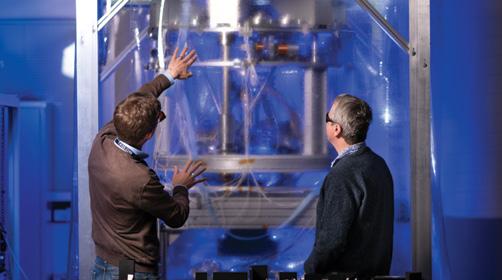

Our extensive postgraduate study options include graduate certificates, graduate diplomas and master’s degrees, as well as higher degrees by research.

0101477

To be considered for admission to a program at ANU, you must meet the minimum admission requirements. Scan the QR code to learn more about program-specific admission requirements.
1. The University reserves the right to alter or discontinue its programs as required. Please note that not all degrees are available to commence in semester 2.
2. Indicative annual fees for international students are subject to change. These fees are intended to serve as a general guide and should not be considered a guarantee of the actual fees that will be charged. Tuitition fees for individual courses are available in the relevant programs & courses course entry. For further information on international tuition fees, please visit programsandcourses.anu.edu.au
* These programs are not CRICOS registered. International students cannot study these programs in Australia on an Australian student visa.
Any exceptions are at the discretion of the academic area.
Learn from ANU students and alumni about their learning experiences, why they chose to study with us and the ways they hope to influence change.

Graduate, Master of Archaeological and Evolutionary Science (Advanced)
With access to the ANU School of Archaeology and Anthropology laboratory in paleo history – the only one of its kind in the Southern Hemisphere – I was able to continue the research I began in Brazil. I was lucky enough to find senior lecturer, Dr Justyna Miszkiewicz, to help me.
I learned a lot about scientific methods at ANU, about the different possibilities in archaeology – things I didn't know before – while focusing on what I needed and wanted to do for my career. Each of my courses was theoretical and practical and I was able to practice analysis in them, which I also had not been able to do back in Brazil.
I studied courses on social anthropology and the applications of social anthropology to archaeology, and learned more about carbon dating. I also studied health and disease. The Master of Archaeological and Evolutionary Science (Advanced) is the only course in the world, I think, with that combination.
Moving from Brazil to Canberra to study at ANU was one of the best decisions I’ve made. After I graduated, I landed a job with Terra Rosa Consulting in Perth. The combination of archaeology and biological anthropology I had studied at ANU was very important for the project I worked on.

Ounu Zakiy Sukaton – Indonesia
Master of General and Applied Linguistics
I was interested in forensic linguistics and ANU offers the best forensic linguistics learning in Australia.
I came to ANU because I was really interested in the linguistics department. Their academic staff, such as Dr Susy Macqueen and Dr Yuko Kinoshita, are very well known. I came with high expectations, but they were exceeded by the reality on the ground.
It was hard, but the standards were very good. I enjoyed working with professionals, people who are good in their field. We did hands-on exercises on how to use specific tools, computer tools and real analysis on specific cases. You get to practice what you learn in class, not just talk about it in theory.

Astha Sharma – India
Graduate, Doctor of Philosophy, ANU School of Engineering
Growing up, we used to have severe heat waves and water scarcity due to drought. I went into renewable energy research to work towards solving the problem.
From the start, I was intrigued by the idea of working on solar cells. The solar photovoltaic group at ANU is one of the best in the world, and it was the cutting-edge research they were doing that prompted me to apply here.
During my bachelor's and master's degrees I had devoured the research papers of recognised world leaders in solar cells at ANU, Dr Fiona Beck and Dr Kylie Catchpole. They became supervisors for my PhD research, along with Dr Siva Karuturi and Dr Heping Shen.
When the solar hydrogen process that we designed met the US DOE standard, we set a world record for solar-to-hydrogen efficiency and provided a pathway towards large-scale renewable hydrogen.

Research is at the core of everything we do. It informs the content of our degrees, influences public policy and solves some of our region’s greatest challenges.
We're addressing key issues for Indigenous populations and increasing our understanding of their cultures, laws and histories with cross-disciplinary research in a number of fields.
Our network of archaeology, anthropology and history scholars are working in remote and metropolitan Australia and Asia and the Pacific to understand societies from ancient times to the present day.
Our interdisciplinary cultural inquiry, creative arts, museum and art curatorship research engages with the social issues facing Australia, including Indigenous cultural expression.
Our interdisciplinary research is contributing to climate change mitigation and developing adaptation solutions. With our connections to government, the private sector and society, it’s also informing policy advice.
With deep connections to CSIRO and global partners, ANU is pushing biodiversity science forward using innovative capabilities in genomics, bioinformatics, ecological modelling and biodiversity policy.
We're exploring new technologies for nuclear, fusion, solar, energy storage, enhanced oil and gas, biofuels and photosynthesis, and smart grid technology.
We're Australia’s home of strategic studies research, education and commentary. Our focus is on understanding the complexity of Asia’s strategic environment, Australia’s place in it, and the utility and application of armed forces in international affairs.
We’re tackling the problems of food security in an interdisciplinary way with global partners. Our research explores crop productivity and disease, water and land management rights and development, as well as economics and policy to improve outcomes for vulnerable populations.
We are looking at the effects of development, climate change and policy decisions on Australian and Asia-Pacific region populations, including First Nations peoples.
Our interdisciplinary behavioural research has applications in e-health, ageing and wellbeing, chronic disease management and perceptual psychology.
We're breaking down some of the barriers to health care, including access, costs and insufficient resources, with research that spans epidemiology, economics, regulation and informatics.
By tackling complex diseases with our hospital and health provider partners, we’re translating findings into policies that improve health outcomes for all people.
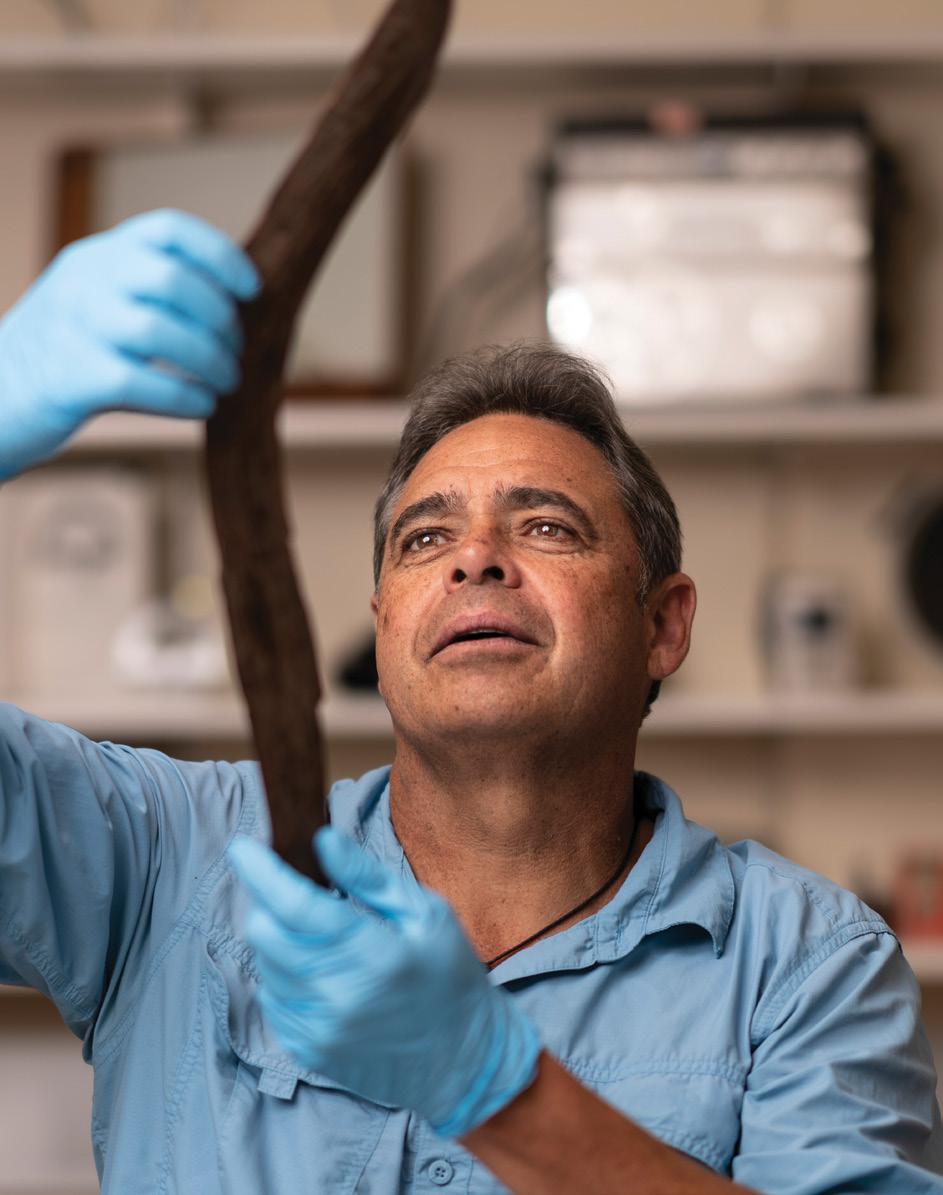

“During my degree, there have been a lot of challenges. The most exciting challenge was when my supervisors
Professor Andy Hogg and Dr Wilma Huneke of the ANU Research School of Earth Sciences and I decided to run a new simulation in the two weeks before my thesis submission. I had to write more codes, plot more figures and put these results into my thesis before submitting it. The pressure was on, but Andy and Wilma encouraged me a lot and I just focused on doing the best I could for everything, rather than worrying about the result I would get. In the end, I submitted a good piece of work on time. I will continue the work I started in my master’s program by exploring physical oceanography and ocean modeling around Antarctica. I am currently trying to find a PhD program and am considering multiple universities, including ANU.”
Graduate, Master of Earth Sciences (Advanced)

ANU hosts the English-speaking world's largest assembly of scholars dedicated to working on Asia and the Pacific countries’ cultures and languages.
Regulation, justice & law
We're exploring legal systems and governance; Australian, international and public law; social justice; human rights and criminology.
Our policy relationships and strengths in macroeconomics, global finance and corporate strategy, among other disciplines, make ANU a powerhouse of business research in Australia.
Exploration of cosmology, galaxies, stars and exoplanets at ANU is seeing us partner with global initiatives, such as the Giant Magellan Telescope, two optical observatories, and internationally respected luminaries like Nobel laureate Professor Brian Schmidt AC FAA FRS.
ANU conducts extensive research into materials science and manufacturing, chemical synthesis, nanoscience and nanotechnology and their application in many industries, including biomedical, space, manufacturing and energy.
Through mathematics, computer science, business information systems, and engineering, we’re working to improve the capabilities of technology, and its ability to perform tasks more efficiently and accurately, while managing digital change.

Discover the latest developments in our research expertise, study programs, industry partnerships, multi-college collaborations and cutting-edge facilities. Learn more



“The Master of Laws (LLM) degree prepared me for the rigours of my PhD program. I had practised as a lawyer in the Philippines, specialising in cybercrime prevention and data privacy protection.
ANU offers a strong research profile and an opportunity to work under the supervision of leading scholars. These were my considerations in selecting which research schools to apply for. The relationship ANU has with the government crafting policies concerning international law together with Canberra’s quiet atmosphere creates a unique environment for writing a doctoral dissertation."
Gemmo Fernandez – Philippines Doctor of Philosophy



Ways to fund your tuition fees and other study expenses include getting a student loan, earning a scholarship or getting a job in Australia. Explore options for your situation.
Apply for a scholarship
ANU offers a variety of postgraduate scholarships every year. Their availability depends on the program you choose, the college managing it and your circumstances. Start by viewing all ANU international postgraduate scholarships and finding out how to apply for them. Browse postgraduate scholarships

2. Receive the Chancellor’s International Scholarship
This ANU scholarship supports academically outstanding international students from around the world – and we will automatically consider you for it when you submit your application to ANU. It reduces tuition fees by 25% or 50%, as well as the amount of your tuition fee deposit.

Learn more about the Chancellor’s International Scholarship
3. Gain credit for study and work experience
Credit for prior study or outstanding work experience reduces the cost of your degree by saving you from having to complete a course. Course credit can be equivalent to the value of a specific ANU course (specified credit) or not equivalent (unspecified credit) and count towards a major, minor or elective course. Learn more about course credit

Some governments offer financial support to international students studying in Australia. You’ll have to find more information yourself, since each country is different, but if you’re successful, a scholarship from your government can cover a large portion of your study fees.
A student loan is like any other loan; it involves repaying an amount you borrow together with accumulated interest. Check if your government offers student loans, as they usually have less interest than private institutions.
Most employers budget for professional development and further study is one of the best ways to build your skillset while adding value to your organisation. If your employer is going to gain from your studies, think about asking if they will pay for your degree.
When you accept an offer with ANU, we'll ask you to pay a AUD20,000 (or AUD40,000 for Doctor of Medicine and Surgery) deposit. Your tuition fees will then be withdrawn from this deposit until the money runs out, after which you’ll receive an invoice at the start of each semester.
Learn more about your work rights as an international student on the Fair Work Australia website, www.fairwork.gov.au


“The financial stability of the Chancellor’s International Scholarship enables me to choose how I want to contribute to the community. Whether it’s volunteering with the ReCyclery and the Canberra Environment Centre, ANU Thrive, or joining the faculty as a tutor, I would not have the free time to do such things – plus keep up with my study – if I didn’t have this scholarship.”
Trevin Susanto – Indonesia Master of Economics

Check our admission requirements but you don't need to meet all of them before you apply. When we receive your application, we’ll automatically consider you for a range of scholarships.
If you're eligible for an offer but not able to meet all our admission requirements by the time you apply, we can make you one on a conditional basis.
I have one of the following:
an Australian bachelor’s degree or international equivalent
an almost completed Australian bachelor’s degree or international equivalent+
extensive and related work experience++
Some ANU degrees have related or ‘cognate’ subjects that you will need to have completed. Some also have a minimum grade point average (GPA)
for you to meet. Learn more about these by clicking on the ‘Admissions and fees’ tab in your degree program’s web page.
You will need to upload to your application clear, colour copies of your:
• academic transcripts
• graduation certificates
• curriculum vitae
• documentation that proves you meet the ANU English language requirements.
+ Let us know the date you expect to complete your degree in your application form and then supply us with a copy of it after we make you an offer.
++ If you do not have a bachelor’s degree, you can provide a curriculum vitae with your ANU application that includes your employment history (duties, responsibilities, hours, name and nature of employer) and provide the contact details of two referees. Your work experience will need to reflect the requirements of the degree you are applying for, so please find out what these are on the program and courses web pages at programsandcourses.anu.edu.au
You can apply to ANU at any time of the year. You can nominate three degree preferences in your application, which increases your chances of getting an offer. We consider most applications submitted by the 15th day of the month for an offer on the first business day of the following month.
Application fee: AUD110.
You need to apply for accommodation separately. Learn more on page 12
An education agent can support you throughout the application process and answer your questions about ANU. They can also upload your supporting documentation and submit your application on your behalf. Find an agent

You can apply directly to the University by creating an account in the ANU application portal. Upload your details and follow the prompts to navigate your way through each step. You can log out and go back to your application at any time before you submit it. Go to the ANU application portal

Browse our coursework and research degrees and discover the GPA and admissions requirements that you’ll need to meet before you apply.

Search programs and courses
dates
Semester 1 26 February – 31 December 2024
Semester 2 June 2024 – May 2025
Application dates for study in 2026
Talk to us
The members of our Future Student Experience team can answer any questions you have about our degrees and the application process. If they can’t help, they’ll put you in touch with the people in our colleges who can.

Talk to ANU

Semester 1 March – December 2025
Semester 2 June 2025 – May 2026

Find a supervisor at ANU before you apply. When we receive your application, we’ll automatically consider you for a scholarship.
To study a higher degree by research at ANU, you must have one of the following: an Australian bachelor's degree with at least second-class honours, or the international equivalent^ another degree with a significant research/thesis component a combination of qualifications, research publications and/or professional experience related to your field of study.
Before you apply, you must also have the approval of a supervisor and/or one of our colleges.
Your application should include:
• a short, draft research proposal
• a list of three referees and their contact details
• original and translated copies of your supporting documents, such as academic transcripts and graduation certificates.
Finding the right supervisor is the first step of your HDR journey. Your supervisor will guide you throughout your research program.
Researchers at ANU belong to one of the seven academic colleges. Start your search for a supervisor by exploring the ones in the college whose disciplines are most relevant to you. You may find that more than one college can offer you supervision in your study area.
Applying for a PhD or MPhil is a bit like applying for a job, so it’s a good idea to approach a supervisor in a professional manner. Take the time to explore their research and publications before you get in touch. Write a brief email introducing yourself and why you will be a good fit as an HDR candidate in the supervisor's research area.
You need the approval of a potential supervisor and the endorsement of their college before you can apply to ANU. Colleges and supervisors may also have their own application processes, so make sure you ask if this is the case.
Learn more about HDR admission

Follow the steps
We are a research-intensive university and our research priorities reflect the challenges facing the world today.

Discover research areas
College staff assess HDR applications and will rank yours against other candidates. If they endorse you, they will automatically consider you for a scholarship.

Discover the application process for your research area
^ Some programs may require upper first-class honours.
Apply through the ANU postgraduate application portal at any time of the year. Make sure that you do this within the deadline of any scholarships you may be considering.
We take 6–8 weeks to assess applications. This could take longer if we're also considering you for a scholarship.
You need to apply for accommodation separately. Learn more on page 12
Start your research application
Log in to the ANU application portal. It’s free! Once you register, you can log out and go back to your application at any time. Go to the ANU application portal

Contact the Graduate Research Office
We can help you with any queries you have about the status of your application or connect you to your college or research area.
Email: gro@anu.edu.au
Phone: +61 2 6125 5777
your degree
Browse our coursework and research degrees and discover GPA, prerequisite subject and any other admissions requirements you’ll need to meet before you apply.

Search programs and courses
We'd love to know your impressions of our student guide! Your feedback will help us improve. Complete the survey
Before you can study a coursework or higher degree at ANU and in Australia, you will need to organise the following:
You need to show that you meet our English language requirements. We accept several English tests as evidence of this, including IELTS, PTE Academic and TOEFL and some high school qualifications completed in English.

Learn more about our English requirements
After you receive confirmation of your enrolment and before you arrive in Australia to study, you will need to apply for, and be granted, a student visa. This is likely to be a subclass 500 student visa.
All visas are subject to conditions and you must ensure that you comply with these at all times. You must also have a valid passport for the duration of your studies.

Explore visa requirements
Overseas student health cover (OSHC)
Once you have accepted your offer, organise your Overseas Student Health Cover. This is a mandatory requirement of your student visa (unless your home country has a Reciprocal Health Care Agreement with Australia).
Your OSHC will cover the costs of visits to the doctor, some hospital treatment, ambulance services and some pharmaceuticals (medicines) while you are studying in Australia. Learn more about OSHC
